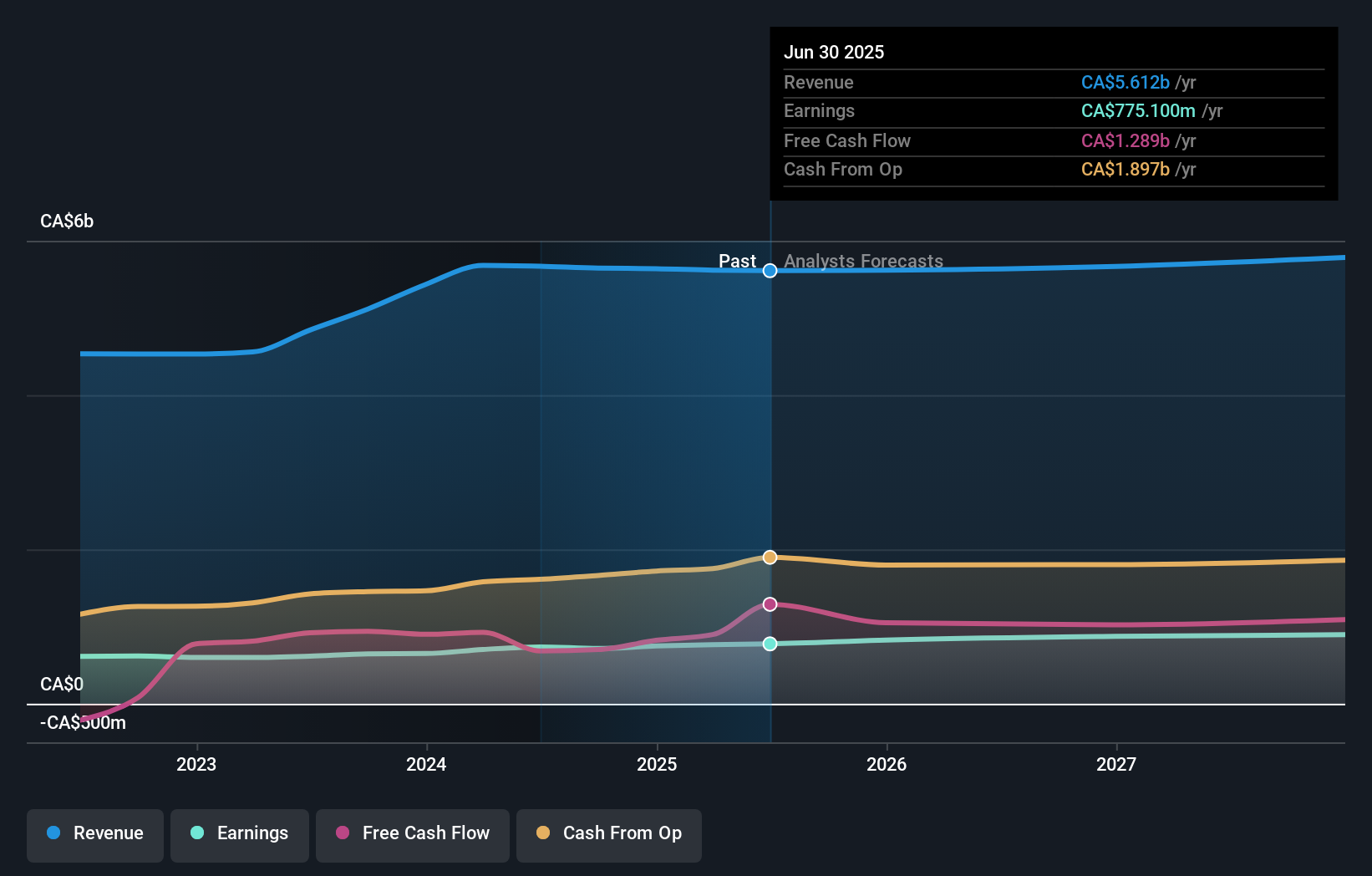- Canada
- /
- Telecom Services and Carriers
- /
- TSX:QBR.A
individual investors who own 36% along with institutions invested in Quebecor Inc. (TSE:QBR.A) saw increase in their holdings value last week
Key Insights
- The considerable ownership by individual investors in Quebecor indicates that they collectively have a greater say in management and business strategy
- 51% of the business is held by the top 11 shareholders
- Institutional ownership in Quebecor is 33%
If you want to know who really controls Quebecor Inc. (TSE:QBR.A), then you'll have to look at the makeup of its share registry. The group holding the most number of shares in the company, around 36% to be precise, is individual investors. In other words, the group stands to gain the most (or lose the most) from their investment into the company.
While individual investors were the group that reaped the most benefits after last week’s 3.3% price gain, institutions also received a 33% cut.
Let's delve deeper into each type of owner of Quebecor, beginning with the chart below.
Check out our latest analysis for Quebecor

What Does The Institutional Ownership Tell Us About Quebecor?
Institutional investors commonly compare their own returns to the returns of a commonly followed index. So they generally do consider buying larger companies that are included in the relevant benchmark index.
Quebecor already has institutions on the share registry. Indeed, they own a respectable stake in the company. This implies the analysts working for those institutions have looked at the stock and they like it. But just like anyone else, they could be wrong. If multiple institutions change their view on a stock at the same time, you could see the share price drop fast. It's therefore worth looking at Quebecor's earnings history below. Of course, the future is what really matters.

Quebecor is not owned by hedge funds. Les Placements Peladeau Inc. is currently the company's largest shareholder with 30% of shares outstanding. With 4.2% and 2.6% of the shares outstanding respectively, RBC Global Asset Management Inc. and CIBC Asset Management Inc. are the second and third largest shareholders. Furthermore, CEO Pierre Peladeau is the owner of 0.9% of the company's shares.
After doing some more digging, we found that the top 11 have the combined ownership of 51% in the company, suggesting that no single shareholder has significant control over the company.
While it makes sense to study institutional ownership data for a company, it also makes sense to study analyst sentiments to know which way the wind is blowing. There are a reasonable number of analysts covering the stock, so it might be useful to find out their aggregate view on the future.
Insider Ownership Of Quebecor
While the precise definition of an insider can be subjective, almost everyone considers board members to be insiders. Company management run the business, but the CEO will answer to the board, even if he or she is a member of it.
I generally consider insider ownership to be a good thing. However, on some occasions it makes it more difficult for other shareholders to hold the board accountable for decisions.
Our data suggests that insiders own under 1% of Quebecor Inc. in their own names. But they may have an indirect interest through a corporate structure that we haven't picked up on. It's a big company, so even a small proportional interest can create alignment between the board and shareholders. In this case insiders own CA$90m worth of shares. It is good to see board members owning shares, but it might be worth checking if those insiders have been buying.
General Public Ownership
With a 36% ownership, the general public, mostly comprising of individual investors, have some degree of sway over Quebecor. While this group can't necessarily call the shots, it can certainly have a real influence on how the company is run.
Private Company Ownership
Our data indicates that Private Companies hold 30%, of the company's shares. Private companies may be related parties. Sometimes insiders have an interest in a public company through a holding in a private company, rather than in their own capacity as an individual. While it's hard to draw any broad stroke conclusions, it is worth noting as an area for further research.
Next Steps:
While it is well worth considering the different groups that own a company, there are other factors that are even more important. For instance, we've identified 1 warning sign for Quebecor that you should be aware of.
If you would prefer discover what analysts are predicting in terms of future growth, do not miss this free report on analyst forecasts.
NB: Figures in this article are calculated using data from the last twelve months, which refer to the 12-month period ending on the last date of the month the financial statement is dated. This may not be consistent with full year annual report figures.
Valuation is complex, but we're here to simplify it.
Discover if Quebecor might be undervalued or overvalued with our detailed analysis, featuring fair value estimates, potential risks, dividends, insider trades, and its financial condition.
Access Free AnalysisHave feedback on this article? Concerned about the content? Get in touch with us directly. Alternatively, email editorial-team (at) simplywallst.com.
This article by Simply Wall St is general in nature. We provide commentary based on historical data and analyst forecasts only using an unbiased methodology and our articles are not intended to be financial advice. It does not constitute a recommendation to buy or sell any stock, and does not take account of your objectives, or your financial situation. We aim to bring you long-term focused analysis driven by fundamental data. Note that our analysis may not factor in the latest price-sensitive company announcements or qualitative material. Simply Wall St has no position in any stocks mentioned.
About TSX:QBR.A
Quebecor
Operates in the telecommunications, media, and sports and entertainment businesses in Canada.
Undervalued established dividend payer.
Similar Companies
Market Insights
Community Narratives



